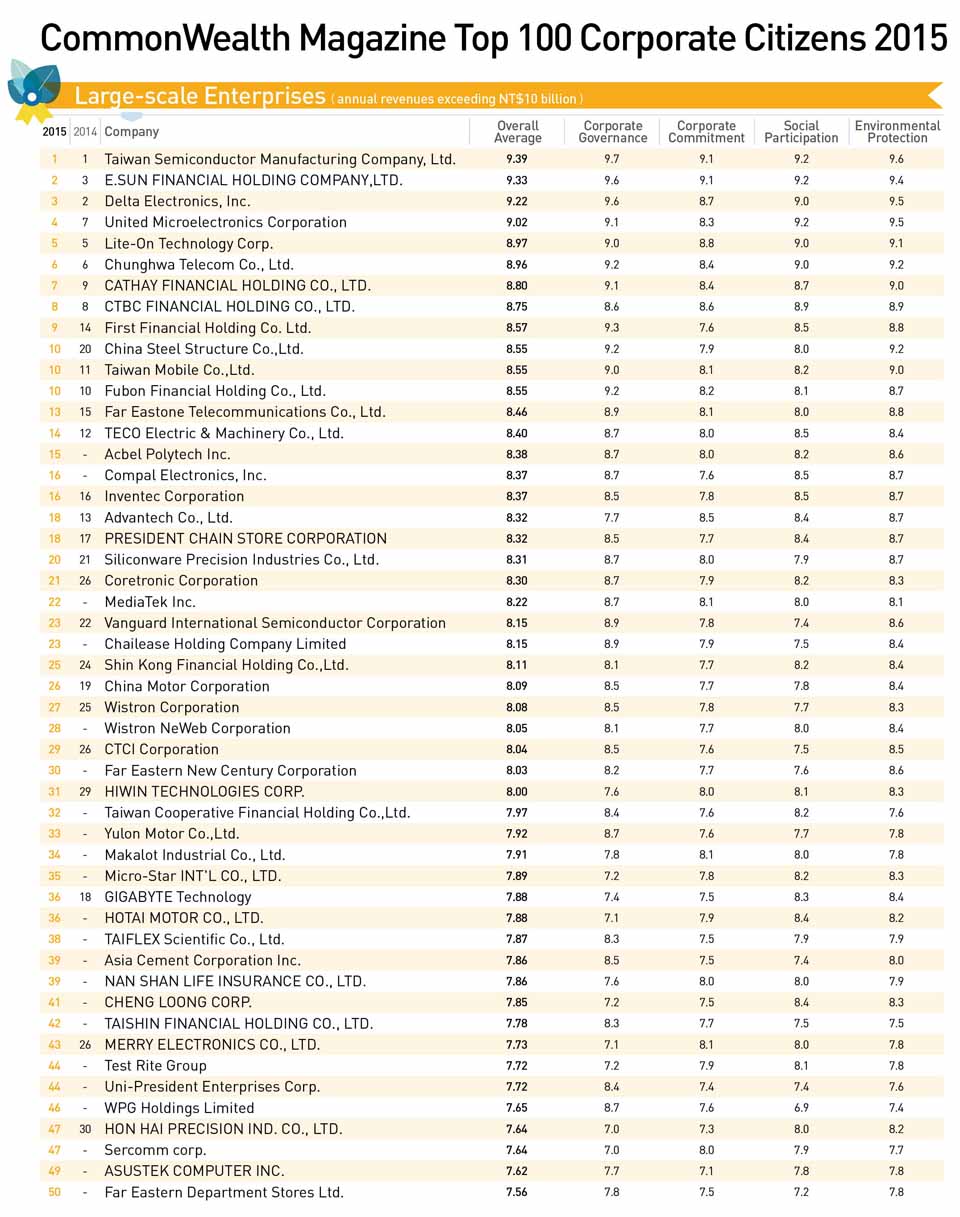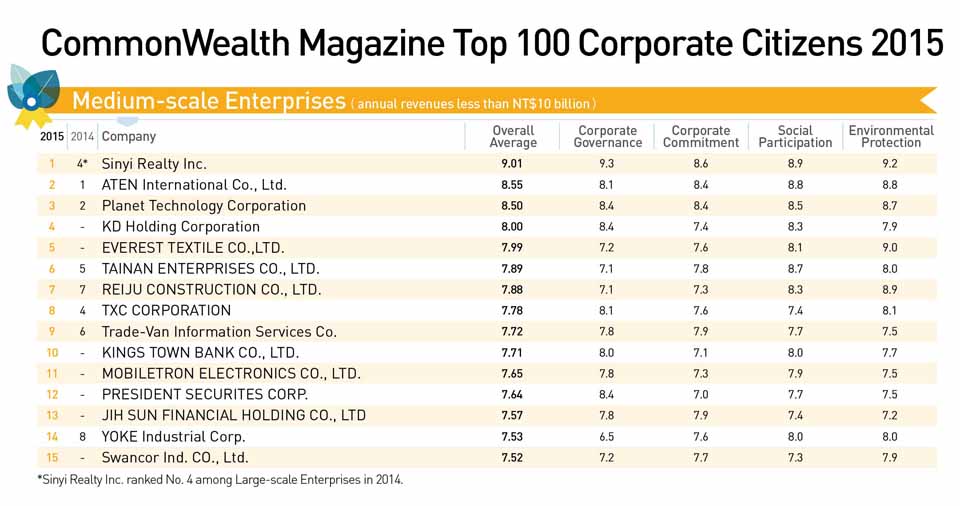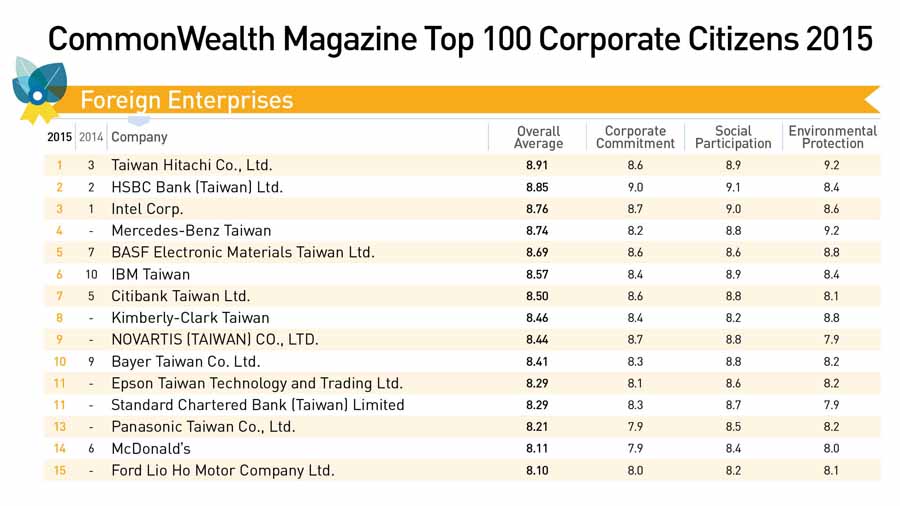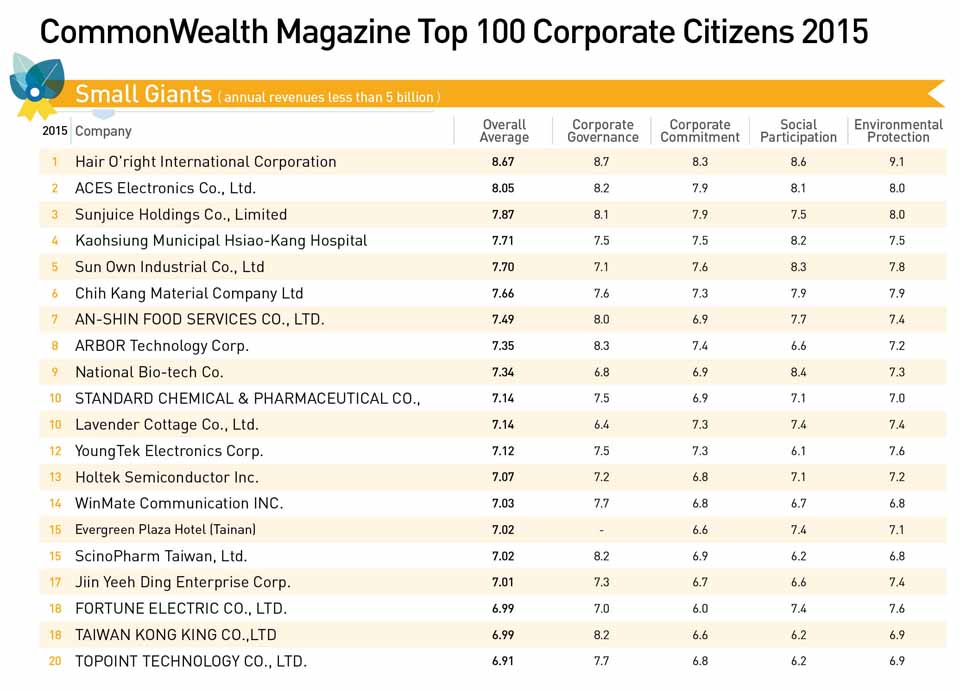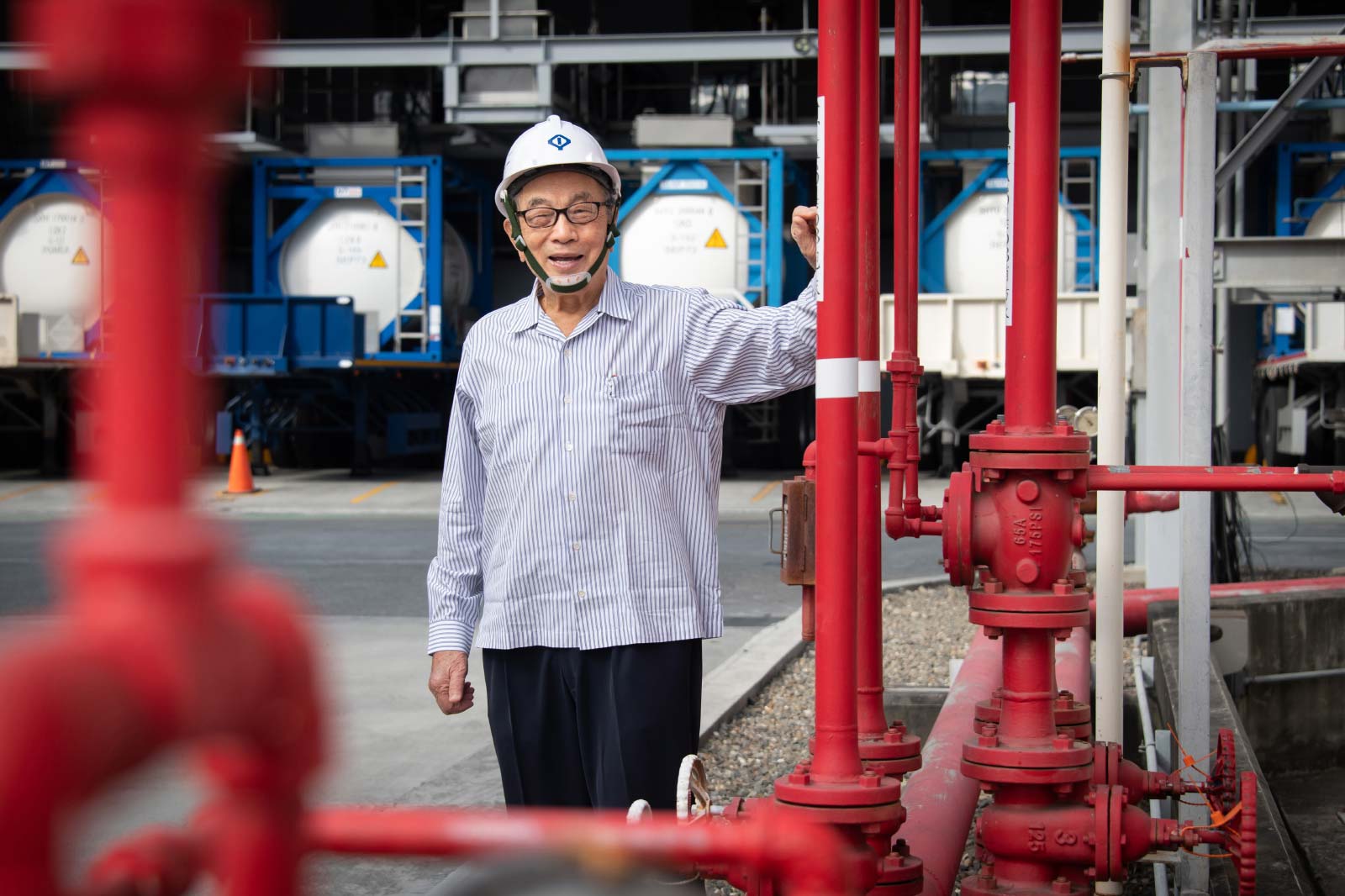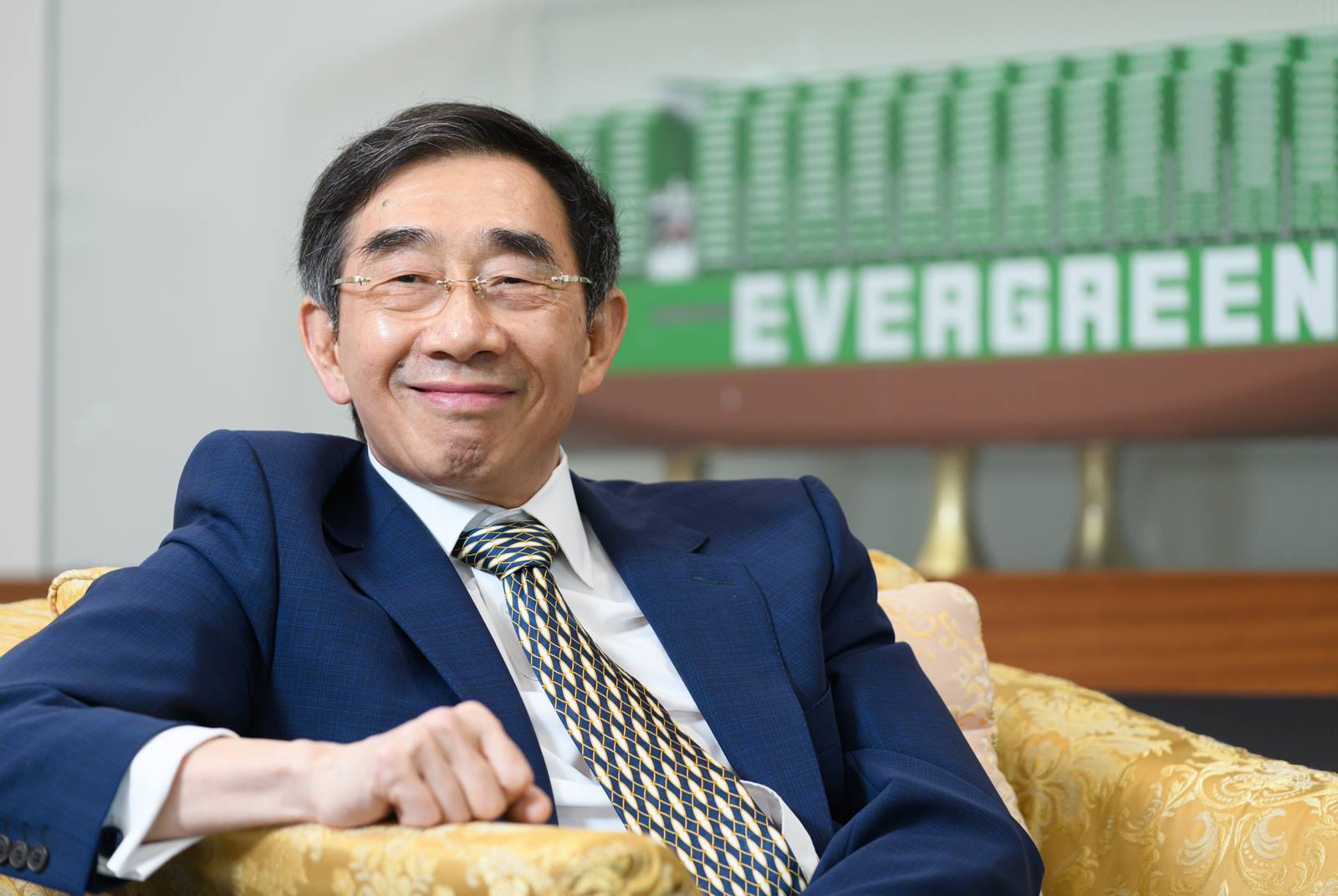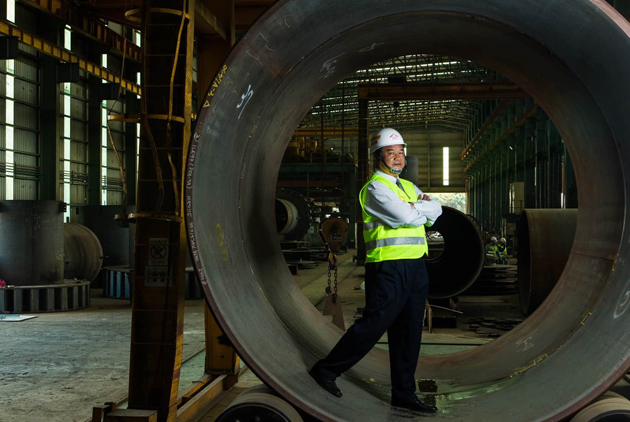2015 CSR Top 100
Small Giants on the Rise

Source:CW
CommonWealth Magazine’s Corporate Social Responsibility Awards include the “small giant” category for the first time this year to acknowledge CSR efforts that often outshine those made by Taiwan’s large corporations and foreign enterprises.
Views
Small Giants on the Rise
By Jimmy Hsiung, Ming-ling HsiehFrom CommonWealth Magazine (vol. 579 )
The results of the 2015 Corporate Social Responsibility Awards are out!
This year’s awards are very different from past ones in that a new category for “small giants” with annual revenue of less than NT$5 billion has been established. As a result, the awards, which previously selected 50 award winners, were expanded to a CSR Top 100.
The emergence of a Top 100 of enterprises with exceptional CSR records shows that corporate social responsibility is no longer just a catchphrase in Taiwan’s business world.
On Aug. 3, U.S. President Barack Obama announced the Clean Power Plan, the country’s most ambitious initiative to date to cut carbon pollution from power plants. By 2030, power plants across America must reduce their greenhouse gas emissions by 32 percent below 2005 levels.
Obama called the plan “the single most important step America has ever taken in the fight against global climate change.” He said that only if America leads the way forward other countries will feel compelled to follow suit.
In fact, the European Union and Japan had previously announced their own climate goals. And in China, the revised Environmental Protection Law, which introduces harsher punishments for environmental wrongdoing and sets stricter environmental standards, went into effect at the beginning of this year.
How about Taiwan? On June 6, the Legislative Yuan passed the Greenhouse Gas Reduction Act, which stipulates that by 2050 greenhouse gas emissions must be reduced to half of their 2005 level. In addition, companies that underreport their emissions can be punished with the suspension or termination of their business operations. Taiwan has finally entered the age of greenhouse emission cuts.
This year is also “CSR year one” for companies listed on Taiwan’s stock exchange and the over-the-counter market. The Financial Supervisory Commission (FSC) is requiring that large listed companies in the financial services, food and chemical sectors with paid-in capital in excess of NT$10 billion to publish a CSR report starting this year.
This means a total of 202 enterprises will have to compile a CSR report by year-end.
FSC Chairman Tseng Ming-chung has already warned that the obligation to publish a CSR report will be expanded to smaller listed enterprises with paid-in capital of more than NT$5 billion beginning next year. That would force an estimated 100 more companies to “do their CSR homework” by the end of 2016.
Given that CSR has become an essential skill in entrepreneurial strategy, an ethical and social orientation and CSR practices must be cultivated and adopted early on. It is for this reason that CommonWealth Magazine decided to establish the small giants category this year.
Aside from fostering CSR awareness and letting socially responsible practices take root on a broader scale, the greater visibility for these hidden CSR champions will help effect change in corporate behavior.
CommonWealth Magazine Top 100 Corporate Citizens 2015
Small Giant -- O’right
Greenest Shampoo…Cleansing People’s Minds
In November 2014, Steven Ko, CEO of Taiwanese haircare manufacturer Hair O’right International Corp., addressed a meeting of some 70 environmental representatives from United Nations member states in Asia in Bangkok. Ko was the only conference participant hailing from a non-U.N. member state and was the only SME representative as well.
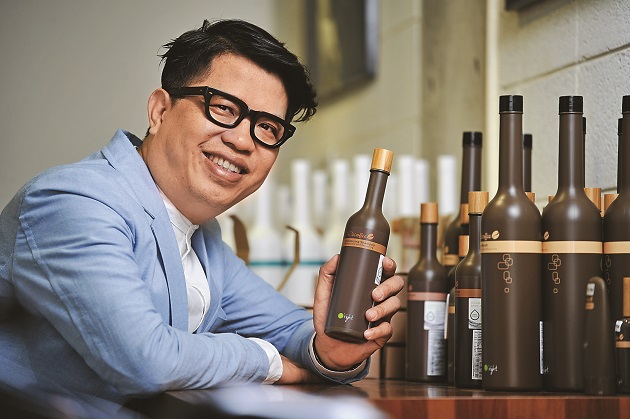 Steven Ko believes that “enterprises do have a choice. When making products you can chose to lower cost or to add value.”
Steven Ko believes that “enterprises do have a choice. When making products you can chose to lower cost or to add value.”
“As soon as I stepped down from the podium they surrounded me, eager to hear how we did it,” recalls Ko, who sports an unruly shock of curly hair and speaks quickly and passionately. Upon return to his home country, the South Korean representative even went to see O’right’s distributor there to gain a better understanding of the company’s green strategy and products.
O’right, which claims to make the world’s “greenest shampoo,” boasts annual revenue of less than NT$300 million but exports its products to more than 30 countries. The company has bagged many green certifications such as carbon footprint certification and has won three international green invention awards. With its focus on eco-friendly manufacturing, the company has been able to build a unique profile and selling point that has built its international reputation.
Last year, O’right won awards at the iENA invention fair in Nuremburg and the Invention and New Product Exposition (INPEX) in Pittsburgh for its Recoffee “Tree in the Bottle” Shampoo, which uses coffee oil that is extracted from recycled coffee grounds. Once the coffee oil has been extracted, the coffee grounds are added to a material mix to make the biodegradable shampoo bottles. The bottles come with two raw coffee beans at the bottom, which will grow into coffee trees when the bottle decomposes into soil.
“We want to make consumers take action and produce ideas,” explains Ko.
The 49-year-old Ko, who says he wants to “create change,” regards himself as a sower of green ideas.
Presently, one-third of Taiwan’s more than 20,000 hair salons use O’right’s green haircare products.
Hair stylists spend a lot of time in close contact with their customers, talking about everybody and his brother during styling sessions and hair treatments. Ko dreams that hair stylists with an environmental mission can influence their customers.
“My stylists are probably not very impressive, but my customers could be pretty important people. They could be mayors, they could be media workers,” notes a smiling Ko in his trademark rapid-fire manner.
Given that there is a hair salon in every neighborhood, green ideas can be disseminated to every household and every individual this way. Aside from using green products, Ko wants his customers to propagate the green ideals behind them.
“The real goal is to plant these concepts in society and the distribution channels,” Ko explains.
Attracting Customers with Green Value-Added
Representatives from over 900 companies visit O’right per year, including multinational enterprises like Chinese Internet giant Alibaba and Japanese carmaker Toyota to learn more about green sustainable manufacturing. Ko is aware that as a small enterprise O’right could exert greater influence if it were able to win over large corporations to its green concept.
“Chairman Ko has an almost religious passion for green and sustainable [practices],” remarks China Venture Management Inc. General Manager Wayne Lo. The venture capital firm, a subsidiary of China Development Industrial Bank, invested NT$80 million in O’right late last year, becoming the company’s first outside investor.
Ko has a strong dedication to green and sustainable practices. A clear example is the faucets inside O’right offices, which are operated with a mechanical foot pedal.
Modern bathrooms usually use hands-free faucets with electronic sensors in order to save water. But Ko says he is very “greedy” and wants to save not just water but also electricity. While hands-free faucets use less water, they continue to consume electricity when no one uses them in the evenings or during weekends and holidays because the sensors remain in stand-by mode. “Forty faucets consume more than 1.75 million watts per year,” Ko estimates.
Ko, who graduated from the Department of Mechanical Engineering at Songshan High School of Agriculture and Industry, founded his company in 2002. Originally the company solely distributed foreign haircare brands but kept losing money until it nearly folded. On the brink of bankruptcy, Ko decided to embark on a quest for “green innovation” and overhaul the company.
“I think an enterprise has only two roles to play in society: one is serving, the other is communicating,” Ko points out. The service and communication targets are not just customers but society at large and the environment.
Therefore, Ko is an avid learner. He dismantles each product’s packaging, breaks down its contents, suppliers, production processes and waste to understand which details can become even greener in each life cycle. He constantly looks for transformative and innovative approaches.
For instance, instead of using plastic materials, O’right’s shampoo bottles are made from starch that has been extracted from discarded fruit and vegetables and other plant waste. Conventional petroleum-based ink has been substituted by eco-friendly soy ink. The handcrafted bamboo bottle caps are cured over a flame which kills parasite and insect eggs and enhances the bamboo’s color instead of using sulphur dioxide bleach.
“In the course of the process you will discover that we actually can make choices, (when making products). You can choose whether to lower cost or whether to add value,” Ko suggests.
The Need to Shoulder Responsibility
O’right’s eco-friendly mission does not stop at its products, as the company has also revamped its factory buildings and offices to make them greener. Moreover, it has led its suppliers and cooperation partners in jointly calculating carbon footprints and participating in beach cleaning drives and lights-off energy conservation initiatives in a bid to propagate eco-friendly practices.
Ko believes that small and medium-sized companies should begin to get involved in corporate social responsibility. In order to do a good job, corporate leaders need to learn and set an example by personally getting involved instead of using a top-down approach by giving orders to the planning and marketing departments to implement CSR. Only if the boss walks his talk will employees be willing to follow suit, which is the key to a successful implementation of CSR, Ko points out.
In the future, fulfilling corporate social responsibility will not only be an option but will in fact become the only way to sustainably manage a company.
Ko predicts that if by the year 2020 companies still do not understand what social responsibility is all about, they will lose their recognition and competitiveness.
Says Ko in stating his core belief: “Enterprises make profits and should therefore also shoulder responsibility.”
Translated from the Chinese by Susanne Ganz

